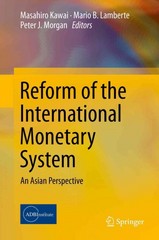Question
THE CASE STUDY Did we learn some economic lessons in recent years? For example, under the right conditions, is inflation relatively insensitive to wages and
THE CASE STUDY
Did we learn some economic lessons in recent years? For example, under the right conditions, is inflation relatively insensitive to wages and unemployment? Over what range of unemployment ratessay, anywhere from 3 to 5 percentdoes this apply? Can we pump trillions of deficit-increasing money into the economy without triggering excessive inflation? What if we spent some of it on added training to fight so-called structural unemployment of workers with the wrong skills for our future economy? With that, could we reduce unemployment to less than 3 percent with little or no inflation?
Or is significantly higher inflation just over the horizon? After all, there is at least a lull in globalization. China's economic development has increased its costs of production and reduced international price competition. Outsourcing may have seen the end of its rapid growth. And workers may belatedly be gaining wage leverage with very low unemployment rates. Savings have accumulated in the US to the point that they could fuel demand that outpaces supply, increasing inflation. Extended ultra-low interest rates may promote all kinds of unwise financial decisions and volatility.likk;lk;l;lkp;lk;lDid we learn some economic lessons in recent years? For example, under the right conditions, is inflation relatively insensitive to wages and unemployment? Over what range of unemployment ratessay, anywhere from 3 to 5 percentdoes this apply? Can we pump trillions of deficit-increasing money into the economy without triggering excessive inflation? What if we spent some of it on added training to fight so-called structural unemployment of workers with the wrong skills for our future economy? With that, could we reduce unemployment to less than 3 percent with little or no inflation?
Or is significantly higher inflation just over the horizon? After all, there is at least a lull in globalization. China's economic development has increased its costs of production and reduced international price competition. Outsourcing may have seen the end of its rapid growth. And workers may belatedly be gaining wage leverage with very low unemployment rates. Savings have accumulated in the US to the point that they could fuel demand that outpaces supply, increasing inflation. Extended ultra-low interest rates may promote all kinds of unwise financial decisions and volatility.Did we learn some economic lessons in recent years? For example, under the right conditions, is inflation relatively insensitive to wages and unemployment? Over what range of unemployment ratessay, anywhere from 3 to 5 percentdoes this apply? Can we pump trillions of deficit-increasing money into the economy without triggering excessive inflation? What if we spent some of it on added training to fight so-called structural unemployment of workers with the wrong skills for our future economy? With that, could we reduce unemployment to less than 3 percent with little or no inflation?
Or is significantly higher inflation just over the horizon? After all, there is at least a lull in globalization. China's economic development has increased its costs of production and reduced international price competition. Outsourcing may have seen the end of its rapid growth. And workers may belatedly be gaining wage leverage with very low unemployment rates. Savings have accumulated in the US to the point that they could fuel demand that outpaces supply, increasing inflation. Extended ultra-low interest rates may promote all kinds of unwise financial decisions and volatility.
EXPLAIN YOUR ANSWERS WITH RELEVANT ANXAMPLES
Question 3
1. As long as more and better statistics to individuals will not automatically lead to balanced conclusion manufacture. _______ Perchance this is for the reason that_____
2. A family inherited 15,000 from a long lost aunt. They are weighing up whether to buy a new car or go on a trip to Australia for a month. They decide to go to Australia. What is the opportunity cost of this decision?
3. In the background of opening cost, the concept of a 'employment off' refers, for specimen, to a shopper
4. The production possibility curve can be used to illustrate each of the following, with the exception of
5. On a manufacture possibility diagram, a proportional increase in productive effectiveness in all sectors of the UK inexpensive would be specified by which of the subsequent?
6. Referring to the production possibility diagram below, at which point is there unemployment in the economy?
7. Which of the ensuing best defines the division of labor____-?
8. Which of the subsequent is a benefit of narrowing down and dissection of labor_____?
9. Which of the resulting make available the best enlightenment of why concentrations encourages trade within an low-cost?
10. Division of labour requires an efficient means of exchange because
Step by Step Solution
There are 3 Steps involved in it
Step: 1

Get Instant Access to Expert-Tailored Solutions
See step-by-step solutions with expert insights and AI powered tools for academic success
Step: 2

Step: 3

Ace Your Homework with AI
Get the answers you need in no time with our AI-driven, step-by-step assistance
Get Started


